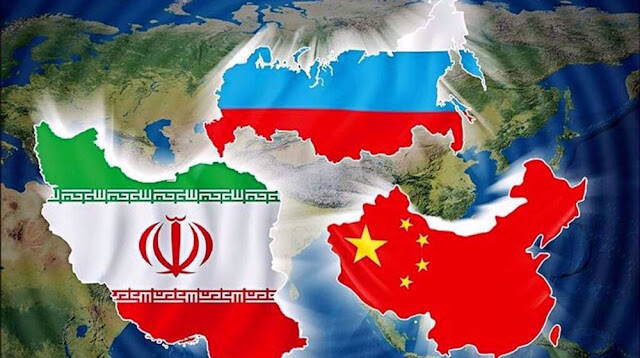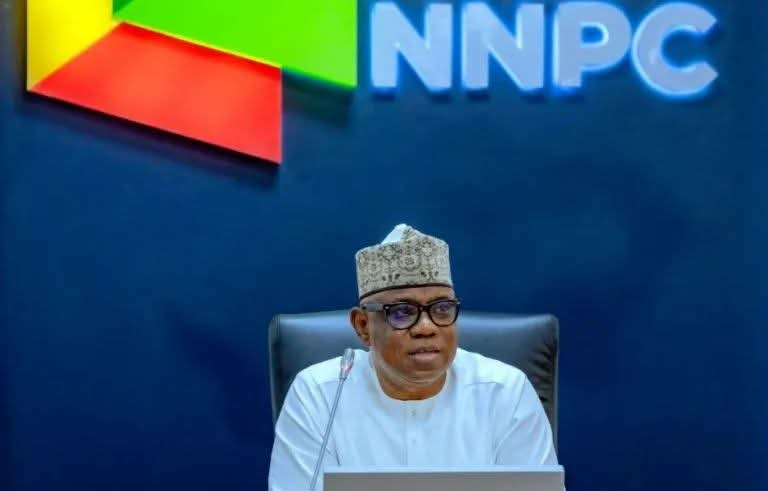In a sharply worded statement issued on Thursday, August 28, 2025, Iran’s Foreign Ministry categorically rejected an attempt by France, Germany, and the United Kingdom (collectively known as the E3) to trigger the snapback mechanism under UN Security Council Resolution 2231, which underpins the 2015 nuclear deal, the Joint Comprehensive Plan of Action (JCPOA). Describing the E3’s move as “baseless, invalid, and legally ineffective,” Iran accused the European powers of pursuing a politically motivated agenda that undermines the spirit of the nuclear agreement and threatens international peace and security. Meanwhile, China and Russia, key allies of Tehran, have countered with a joint resolution to extend Resolution 2231, signaling a deepening diplomatic rift within the Security Council.
The escalating tensions over the JCPOA reflect broader geopolitical divisions and raise critical questions about the future of multilateral diplomacy, the credibility of the UN Security Council, and the prospects for resolving one of the most contentious issues in international relations: Iran’s nuclear program.
Iran’s Robust Rejection of the E3’s Move
Iran’s Foreign Ministry issued a scathing rebuke of the E3’s attempt to invoke the snapback mechanism, which would reimpose UN sanctions on Iran that were lifted as part of the JCPOA. The ministry described the move as an “unjustified action” that violates the Dispute Resolution Mechanism (DRM) outlined in the nuclear deal. The DRM, designed to address disputes among JCPOA signatories through a multi-stage and consultative process, was intended to prevent unilateral actions that could destabilize the agreement. Iran argued that the E3 had failed to adhere to these procedural requirements, rendering their snapback attempt legally flawed.
“This action is a legally defective attempt to misuse Resolution 2231 in pursuit of a biased political agenda against Iran,” the ministry stated, accusing the E3 of aligning with the United States’ “unilateral and coercive” measures following Washington’s withdrawal from the JCPOA in 2018. The US exit, orchestrated by then-President Donald Trump, reimposed stringent sanctions on Iran and set off a chain of events that has strained the nuclear deal to its breaking point. Iran emphasized that the E3 have no “legal or moral authority” to invoke snapback, particularly given their own failure to uphold their commitments under the JCPOA.
The ministry pointed to the E3’s non-compliance with the deal’s economic provisions, including their failure to deliver on promised sanctions relief following the JCPOA’s “Transition Day” on October 18, 2023. Instead, Iran noted, the E3 have imposed new sanctions on its civilian aviation and maritime sectors, further undermining the agreement’s objectives. “These countries cannot claim to act in good faith while they have long failed to meet their obligations and have aligned with the US in violating the deal,” the statement read.
Iran also framed its own actions—described as “remedial measures” in response to the E3’s and US’s violations—as “gradual, proportionate, and entirely consistent” with its legal rights under the JCPOA. These measures include Iran’s gradual reduction of its nuclear commitments, such as increasing uranium enrichment levels, which Tehran insists are reversible if other parties return to full compliance.
Attacks on Nuclear Facilities and the Blame Game
Adding fuel to the controversy, Iran condemned the E3’s snapback attempt in the context of recent attacks on its nuclear facilities, which it attributed to a “former JCPOA participant,” an apparent reference to the United States. While Iran did not provide specific details about the attacks, such incidents have been a recurring issue in recent years, with Israel and the US often implicated in covert operations targeting Iran’s nuclear infrastructure. Tehran argued that the E3’s move effectively “rewards the violator and punishes the victim,” highlighting the US’s unilateral withdrawal from the JCPOA and subsequent reimposition of sanctions as the root cause of the deal’s unraveling.
The ministry’s statement underscored the broader implications of the E3’s actions, warning that they could undermine Iran’s ongoing cooperation with the International Atomic Energy Agency (IAEA). The IAEA, tasked with monitoring Iran’s nuclear activities, has played a critical role in verifying compliance with the JCPOA. Iran described the snapback attempt as “provocative and unnecessary,” pledging to deliver an “appropriate response” while cautioning that the move could jeopardize the credibility of the UN Security Council itself.
“Triggering the snapback mechanism without following the necessary procedures and without a valid legal basis not only undermines confidence in Council decisions but also puts international peace and security at risk,” the ministry warned. This rhetoric reflects Iran’s strategy of framing the E3’s actions as a threat to the global order, appealing to other Security Council members to reject the initiative.
Russia and China’s Counter-Move: A Push for Diplomacy
In a direct response to the E3’s snapback notification, Russia and China, both permanent members of the Security Council and staunch supporters of Iran, proposed a joint resolution to extend Resolution 2231 for six months, until April 18, 2026. The draft resolution, circulated by Russia on Thursday, calls for suspending “any substantive consideration” of JCPOA-related matters during this period and urges all parties to resume negotiations immediately. The move is designed to buy time for diplomatic efforts to salvage the nuclear deal, which has been on life support since the US withdrawal.
Russia’s deputy ambassador to the UN, Dmitry Polyanskiy, was unequivocal in his criticism of the E3’s initiative, arguing that it lacks legal validity and contravenes the procedural requirements of the JCPOA and Resolution 2231. Speaking to reporters, Polyanskiy read from the Russia-China draft, stating: “The Security Council, acknowledging the importance of diplomatic means regarding Resolution 2231, will decide to extend the resolution technically for six months, until April 18, 2026, to allow more time for negotiations. All JCPOA members must immediately resume talks.”
Polyanskiy framed the situation as a critical juncture for the international community, warning that the world stands at a crossroads. “One path leads to diplomacy, peace, and normal human relations. The other path is coercion and other measures—the path chosen by France, the UK, and Germany,” he said, accusing the E3 of escalating tensions through their snapback letter. The Russian diplomat urged the Security Council to reject the E3’s notification and approve the technical extension, emphasizing that diplomacy remains the only viable path forward.
China, a co-sponsor of the draft resolution, has similarly advocated for renewed negotiations and opposed the reimposition of sanctions. Both countries have maintained close economic and political ties with Iran, viewing the JCPOA as a cornerstone of multilateral diplomacy and a bulwark against further instability in the Middle East. Their joint resolution reflects a broader strategy to counter Western influence in the Security Council and protect their strategic interests in the region.
The JCPOA and the Snapback Mechanism: A Complex Framework
The JCPOA, signed in 2015 by Iran and the P5+1 (the five permanent members of the Security Council—China, France, Russia, the UK, and the US—plus Germany), was a landmark agreement aimed at curbing Iran’s nuclear program in exchange for sanctions relief. Under the deal, Iran agreed to limit its uranium enrichment and allow robust IAEA inspections, while the international community committed to lifting economic sanctions that had crippled Iran’s economy.
UN Security Council Resolution 2231, adopted to endorse the JCPOA, includes a snapback mechanism that allows any signatory to reimpose UN sanctions if Iran is found in significant non-compliance with the deal. However, the mechanism requires adherence to the DRM, which involves a series of steps, including consultations and negotiations, to resolve disputes before escalating to snapback. Iran and its allies argue that the E3 have bypassed these steps, rendering their notification invalid.
The E3’s decision to formally submit their snapback notification on Thursday triggered a 30-day countdown, during which the Security Council must decide whether to reimpose sanctions. If no resolution is adopted to block the snapback, sanctions will automatically be reinstated, a move that could further destabilize the region and escalate tensions between Iran and the West.
Geopolitical Implications and the Risk of Escalation
The diplomatic clash over the JCPOA reflects deeper divisions within the Security Council and the international community. The E3’s move aligns with their broader concerns about Iran’s nuclear activities, particularly its increased uranium enrichment and reduced cooperation with the IAEA. Western powers have accused Iran of violating the spirit of the JCPOA, citing its stockpile of enriched uranium and restrictions on IAEA inspections. Iran, in turn, insists that its actions are a legitimate response to the failure of other parties to uphold their commitments.
The US withdrawal from the JCPOA in 2018, followed by the reimposition of sanctions under the Trump administration’s “maximum pressure” policy, marked a turning point in the deal’s implementation. The Biden administration has sought to revive the agreement through indirect talks, but progress has been stymied by mutual distrust and domestic political pressures in both the US and Iran. The E3’s snapback attempt further complicates these efforts, signaling a hardening of Western resolve to pressure Iran into compliance.
For Iran, the stakes are high. The reimposition of UN sanctions would exacerbate its economic challenges, which have already been strained by US sanctions and internal mismanagement. Inflation, unemployment, and shortages of essential goods have fueled public discontent, and further sanctions could deepen the crisis. Iran’s warning that the E3’s actions could undermine IAEA cooperation raises the specter of a nuclear escalation, with Tehran potentially accelerating its nuclear program in defiance of international pressure.
The Russia-China resolution, by contrast, seeks to preserve the status quo and create space for diplomacy. However, its success depends on the willingness of other Security Council members, particularly non-permanent members, to support the extension. The E3’s reaction to the draft resolution will be a litmus test of their commitment to diplomacy, as Iran’s UN mission noted in its statement: “This is a decisive moment for Security Council members, who must choose: support the Russian and Chinese draft resolution for a technical extension of Resolution 2231 and diplomacy—or proceed with the snapback mechanism and bear the serious consequences.”
The Broader Context: A Fragile Global Order
The dispute over the JCPOA and Resolution 2231 underscores the fragility of the global non-proliferation regime and the challenges of maintaining multilateral agreements in an era of geopolitical rivalry. The nuclear deal was hailed as a triumph of diplomacy when it was signed in 2015, but its unraveling has exposed the limits of international cooperation in the face of competing national interests. The US’s unilateral withdrawal, the E3’s uneven implementation, and Iran’s retaliatory measures have eroded trust among the parties, making a return to full compliance increasingly elusive.
The Security Council’s credibility is also at stake. Iran’s warning that the E3’s actions could undermine confidence in the Council’s decisions reflects broader concerns about the body’s ability to address global challenges. The Council’s permanent members are deeply divided, with the US, UK, and France often aligned against Russia and China. This polarization has hampered effective responses to conflicts in Ukraine, Syria, and elsewhere, and the JCPOA dispute risks further eroding the Council’s authority.
Conclusion
Iran’s condemnation of the E3’s snapback attempt, coupled with Russia and China’s counter-resolution, highlights the precarious state of the JCPOA and the broader challenges facing multilateral diplomacy. Tehran’s assertion that the E3’s move is legally flawed and politically motivated underscores the deep mistrust between Iran and Western powers. Meanwhile, the Russia-China draft resolution represents a last-ditch effort to preserve the nuclear deal and prevent a further escalation of tensions.
As the Security Council grapples with this critical issue, the international community faces a stark choice: recommit to diplomacy and dialogue or risk a return to confrontation and sanctions. The outcome of this dispute will not only shape the future of Iran’s nuclear program but also test the resilience of the global non-proliferation regime and the UN Security Council’s ability to uphold international peace and security. Iran’s call for “all responsible members of the international community” to reject the E3’s initiative is a plea for a return to constructive engagement, but the path forward remains fraught with challenges.






